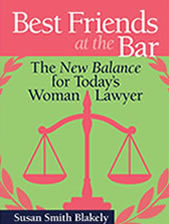Are women paid less than men for performing the same job? Sounds like it should not be the case or that it should have been outlawed long ago, right?
Well, it was and it wasn’t, and there are a lot of terms open to interpretation in the Equal Pay Act of 1963 and the more current Fair Pay Act, also known as the Lily Ledbetter Act, signed into law by President Obama in 2009. In fact, even with those protections, the research reporters at Forbes.com, as quoted in the Post-Standard Syracuse on-line newspaper in April, find that a woman working full time now earns 77 cents for every dollar a man working full time earns.
That figure is even more astounding when combined with a recent Pew Research Center poll that reports that two-thirds of women between the ages of 18 and 34 cited high-paying career among their top life priorites, compared to 59 per cent of young men who had the same aspirations. In fact, this reversed a similar study done in 1997 and reported in the Post Standard Syracuse.com on-line source, which found that men were more career-driven than women.
One conclusion is that women aspire to high paying jobs more than men, but men are still making 25% more than women for the same work. So, that may make you wonder whether we are living in a third world country—at least that is what it makes me wonder some times. But, then, as a lawyer, I understand that the laws are complicated and are replete with opportunities for loopholes.
Take for instance the Equal Pay Act of 1963, discussed above. That is a United States federal law amending the Fair Labor Standards Act of 1938, aimed at abolishing wage disparity based on sex. It was signed into law by President John Kennedy, and, in passing the bill, Congress denounced pay-related sex discrimination because it depresses wages and living standards for employees necessary for their health and efficiency, and it prevents the maximum utilization of the available labor resources, among other reasons. Sounds like exactly what is happening today, doesn’t it—if the Forbes.com figures are correct?
Although I am not an employment lawyer, I can see lots of opportunity to escape application of the Equal Pay law within the context of law firms in just the following words defining the law:
“No employer having employees subject to any provisions of this section [section 206 of title 29 of the United States Code] shall discriminate, within any establishment in which such employees are employed, between employees on the basis of sex by paying wages to employees in such establishment at a rate less than the rate at which he pays wages to employees of the opposite sex in such establishment for equal work on jobs[,] the performance of which requires equal skill, effort, and responsibility, and which are performed under similar working conditions, except where such payment is made pursuant to (i) a seniority system; (ii) a merit system; (iii) a system which measures earnings by quantity or quality of production; or (iv) a differential based on any other factor other than sex …”
In fact, a 2007 Department of Labor study cautioned against overzealous application of the law without closer examination of possible reasons for pay discrepancies. This study suggests that men as a group earn higher wages in part because men dominate blue collar jobs, which are more likely to require cash payments for overtime work; in contrast, women comprise over half of the salaried white collar management workforce that is often exempted from overtime laws.
So, there is a lot to chew on here. For instance, ponder just these few questions:
* Salaries are private at my company so how can I tell if I’m getting equal pay as my male counterpart?
* Who determines what “substantially equal work” means at my company?
* Does my compensation fall under one of the exceptions for a seniority system, a merit system or a system which measures earnings by quantity or quality of production?
This is not an attempt to brief the law or the applicability of the law to any situation. However, it is important that young women understand that these issues exist. So often, we take for granted things that are really unsettled and that need greater attention. For instance, women today are seeing their rights eroded in areas of reproductive freedoms that we thought were settled years ago—only to find that they are being threatened again in the 21st Century.
So, heads up. Watch for news on the Equal Pay issue and be cognizant of where you fit into all of this. It is complicated, but that does not mean that you should not be paying attention.
Mr. Obama was surrounded by a group of beaming lawmakers, most but not all of them Democrats, in the East Room of the White House as he affixed his signature to the Lilly Ledbetter Fair Pay Act, a law named for an Alabama woman who at the end of a 19-year career as a supervisor in a tire factory complained that she had been paid less than men.
After a Supreme Court ruling against her, Congress approved the legislation that expands workers’ rights to sue in this kind of case, relaxing the statute of limitations.
Prior to that:












